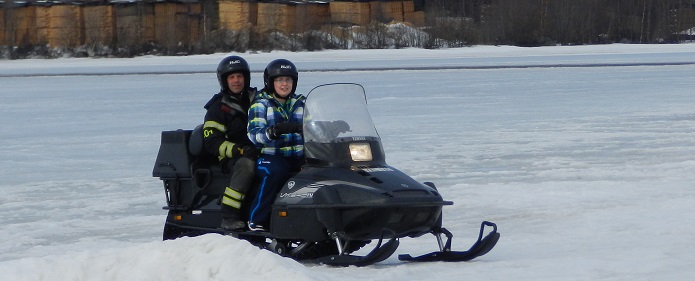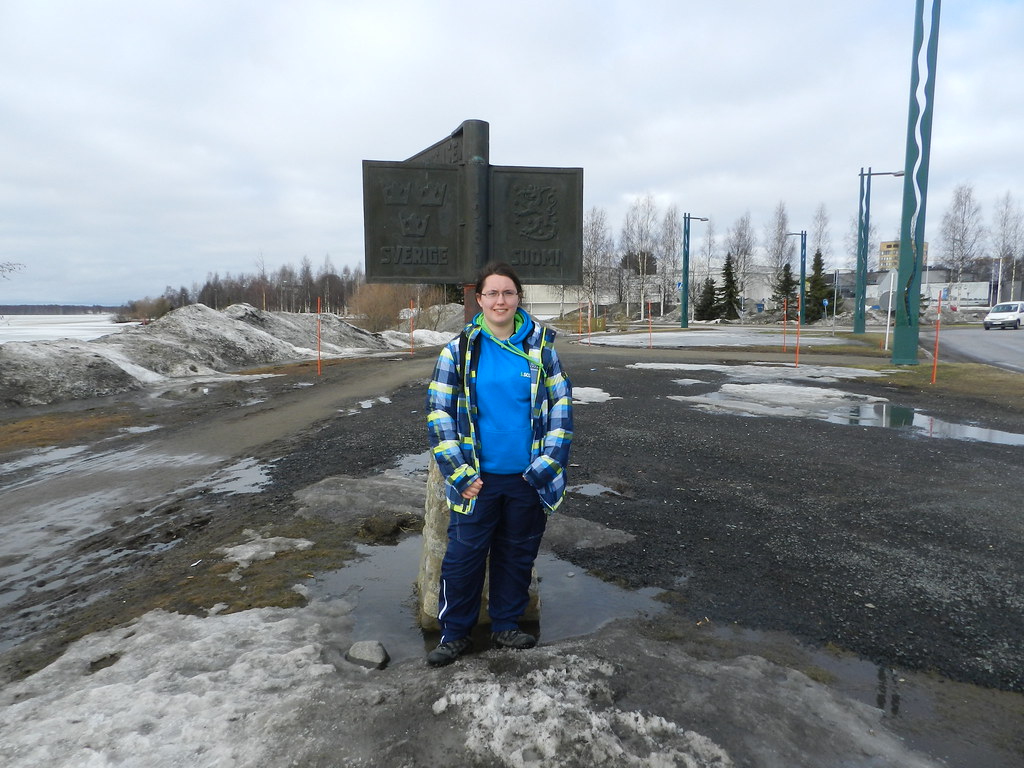
Eye-opening emergency services experience in Sweden for Scottish health and social care learner
Scottish learner, Anja Johnston, had a hands-on educational experience in Kalix, Sweden in 2016 that led her to want to give back to her community. While studying Health and Social Care at North Highland College, Anja had the opportunity to experience education, work and emergency response in Sweden thanks to her college's Erasmus+ project.
The trip gave Anja the chance to see an Accident and Emergency department in action, take part in drills with the local fire service and meet a group of young refugees who moved to the area.
Pre-flight nerves
Although she was nervous about spending time abroad outside her comfort zone, Anja didn't let her worries stop her from making the most of the experience.
“I had just turned 19 and this was really my first experience of being away from home and independent for an extended period.
“I wasn’t sure what to expect when we got there. I knew that the location had been chosen as it was similar to my area in Scotland, in that we are both small,  somewhat rural towns in the north with limited local education opportunities and a dwindling health care system," Anja said.
somewhat rural towns in the north with limited local education opportunities and a dwindling health care system," Anja said.
“I had my worries such as the language barrier, struggling with potential homesickness and all the challenges that come with that – and the temperature. April in the North of Sweden still sees a considerable amount of snow and ice.
“However, I had one of the most incredible experiences ever. The beauty was indescribable."
Hands-on experience
The experience gave Anja the chance to compare the differences and similarities between education, care and rural communities between Sweden and Scotland.
“I spent time in the local high school which instantly threw up a difference between our education systems. I believed we were studying similar courses but in Scotland we were really learning about the theory of why we care the way we do and in Sweden it was very hands-on and practical.
“I managed to get a placement in the local Accident and Emergency department. I quickly learned that, like where I live, this was really a stopping point for patients to be assessed, initial treatment administered and stabilised before being moved to a ‘more capable’ hospital.
“All the nurses and doctors, even paramedics I spoke to, told me about the downgrading of their hospital and how it was affecting their workload. A hospital that was fully kitted out to deal with all that came to them but it had been decided that patients would be better travelling further, often in atrocious weather during the winter months, to a bigger hospital where there were more specialist care services.
I had more hands-on, practical experience learning transferrable skills in those three weeks than I had over the year of college.
“An element of the placement was helping at the local fire station to practise live rescues from cars. It was good to be able to help the fire service improve their skills, particularly when it comes to accidents with foreign nationals.
“Seeing first-hand how they work as a team during these incidents has given me a better appreciation for their work. They fully involved us and even set on an extra day to provide us with the full experience of becoming fire fighters for a day – they really went above and beyond.
Working with refugees
“One thing that I never anticipated and that was interacting with refugees. Where I am from you do not see many refugees and we are quite sheltered from the refugee crisis. My understanding only came from what I had seen on the news.
“I noticed quite quickly just how many young refugees there were in the school in the first few days. There was a building next door to our accommodation that hosted a youth club focused on refugees coming together, having fun and meeting other young people in the community. We were invited to attend and we got to  know these young people and become friends.
know these young people and become friends.
“They opened up to us about the journeys they had been on. Coming for a better life and education, many of them had left their whole family behind, unsure whether they would ever see or even speak to them again.
"I have a newfound respect for these people and will now always challenge people who speak ill of refugees, as until you get to know them you have no idea of their story."
Anja's experience left her wanting to support her own community and those thinking of taking part in the programme in the future when she returned.
“If you are thinking about taking part in Erasmus+ then go for it. Many of the people in my class were so worried about the time they would miss in class or the added pressure of getting assessments completed early, but that pressure was more than worth it to gain the experience I had.
“I had more hands-on, practical experience learning transferrable skills in those three weeks than I had over the year of college. If you are really unsure speak to your school, college or university and find out if you can speak to past participants, as we have the lived experience and can really give you the push you need to apply.
“Before going to Sweden, I wanted to be a paramedic and I still ultimately want to do that, but from hearing the stories of those young refugees I am now a youth worker, helping disadvantaged young people in the community to achieve their goals."
Want to hear more from other young people who have taken part in the programme? Read our participant stories now.
